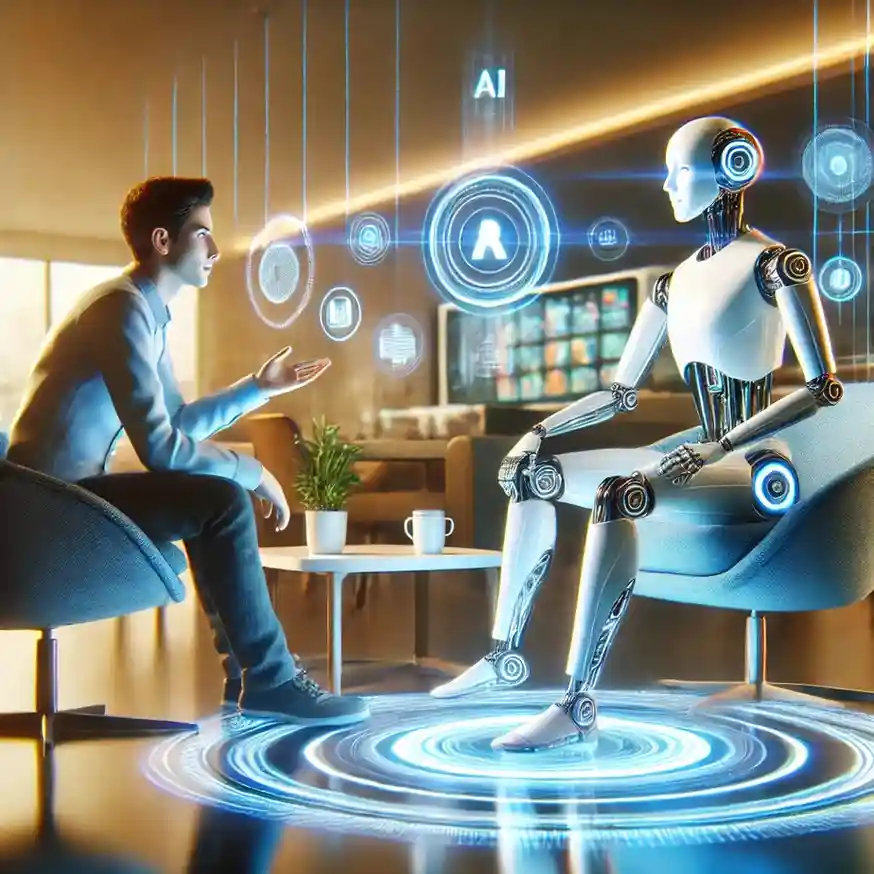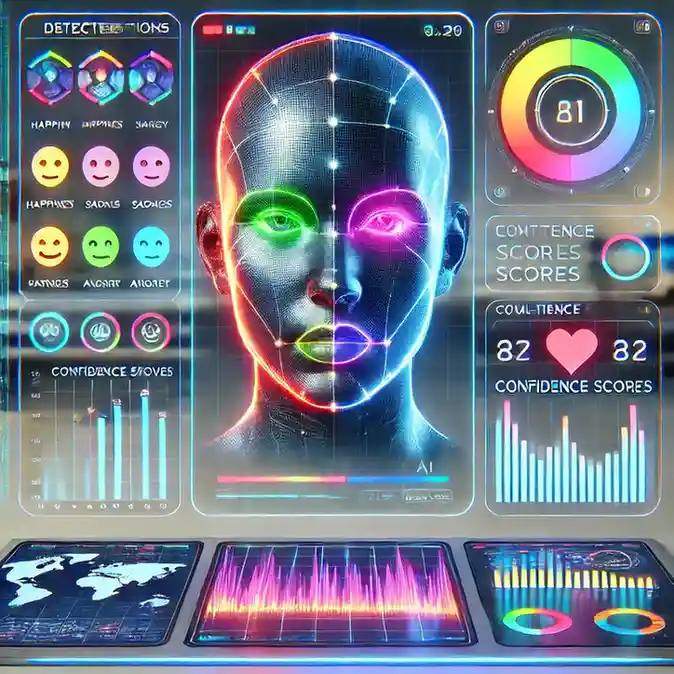Emotional Intelligence in AI: Machines Learning to Understand Us
By admin | Dec 14, 2024 | 3 min read

In the ever-expanding world of artificial intelligence, a fascinating new frontier is emerging: Emotional AI. This innovation isn’t just about machines performing tasks faster or smarter; it’s about teaching them to feel. Well, sort of. Emotional AI enables machines to interpret and respond to human emotions, pushing the boundaries of human-machine interaction like never before.
What is Emotional AI?
Traditional AI systems excel at crunching numbers and executing data-driven tasks. Emotional AI, however, takes this a step further by integrating empathy into algorithms. By analyzing human expressions, vocal tones, and text sentiment, these systems decode the subtleties of emotional cues. Advanced technologies like natural language processing (NLP), facial recognition, and sentiment analysis are at the core of this transformative approach.
Imagine having a virtual assistant that doesn’t just hear your words but understands the frustration in your tone, or a chatbot that detects excitement in your text and adjusts its tone to match. Emotional AI aims to create interactions that feel human—not robotic.

Real-World Applications of Emotional AI
This leap forward is already finding its place across industries:
- Customer Service: Imagine reaching out to support and getting a virtual assistant that empathizes with your frustration. Emotional AI can interpret customer emotions and adjust its responses, improving satisfaction and loyalty.
- Healthcare: Emotional AI can revolutionize patient care by identifying stress or discomfort in a patient’s voice or demeanor, helping professionals address their needs more effectively.
- Education: Adaptive learning systems can use Emotional AI to tailor lessons based on a student’s mood, fostering a supportive environment for better engagement and learning outcomes.
- Entertainment: Streaming platforms are beginning to explore ways to recommend content based on user emotions, creating personalized experiences like never before.
Challenges in the Path Ahead
As with any groundbreaking technology, Emotional AI comes with its own set of challenges:
- Privacy Concerns: Emotional AI relies on sensitive emotional data, raising questions about how this data is collected, stored, and used.
- Bias in Algorithms: Ensuring fairness in emotional interpretation is critical to avoid misrepresentation or reinforcing stereotypes.
- Trust Issues: Transparency in data usage and adherence to ethical standards are essential for building user trust.
The Future of Emotional AI
The potential for Emotional AI is immense, but so are the responsibilities it brings. Tech companies are developing robust security protocols and ethical guidelines to ensure these systems respect user privacy. As Emotional AI becomes more sophisticated, it’s likely to play an integral role in mental health monitoring, personalized marketing, and even environmental sustainability through energy-efficient algorithms.
Conclusion: A More Human AI
As machines grow smarter, they’re also becoming more human in how they connect with us. Emotional AI represents a bold step forward, blending the precision of technology with the warmth of empathy. While challenges remain, its ability to transform industries and enhance our daily lives is undeniable.
The future of Emotional AI isn’t just about what machines can do—it’s about how they make us feel.
Comments
Please log in to leave a comment.




No comments yet. Be the first to comment!